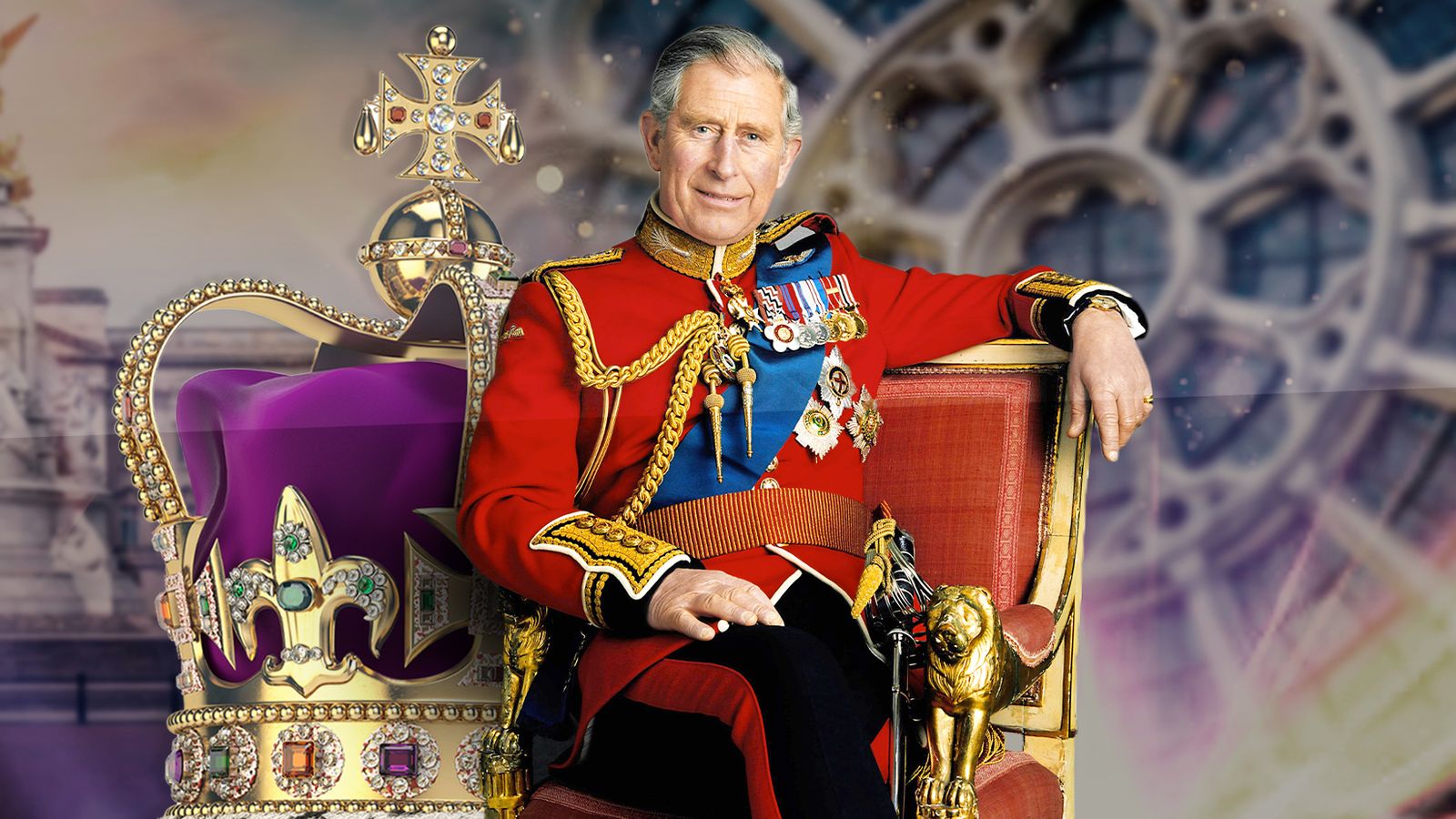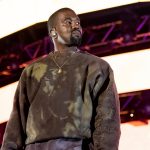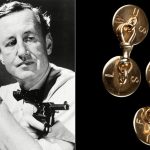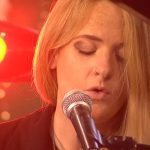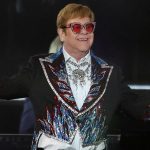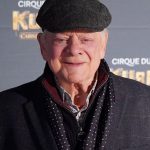King Charles will be crowned on Saturday 6 May 2023, but celebrations will take place all weekend – including processions, a concert and nationwide lunches.
Confused about what’s happening where and who’s curtseying to whom? Read on for Sky News’ ultimate guide to the coronation weekend.
When and what time is the King’s coronation?
The coronation of King Charles III – and his wife, soon to be known as Queen Camilla – will take place on Saturday 6 May 2023.
The ceremony at Westminster Abbey will start at 11am after the royals arrive in procession from Buckingham Palace.
After the ceremony, more members of the royal family will join for the procession back to the palace.
The King and Queen Consort will be joined by other family members on the balcony of Buckingham Palace to conclude the day’s ceremonial events.
The procession route
Unlike the Queen at her coronation, the King and Queen Consort will take the same 1.3-mile route to and from the ceremony.
They will travel down The Mall via Admiralty Arch, take the south side of Trafalgar Square, then go along Whitehall and Parliament Street, take the east and south sides of Parliament Square to Broad Sanctuary, before arriving at the Abbey.
The Queen took a much longer route after her coronation, travelling five miles through Whitehall, Trafalgar Square, Pall Mall, Hyde Park Corner, Marble Arch, Oxford Circus, and finally down the Mall to end at Buckingham Palace.
The new King and Queen will travel in the Diamond Jubilee State Coach on their way to the ceremony and use the 260-year-old Gold State Coach for the return journey.
Best spots to watch the procession in person
Viewing spots along the procession route will be in high demand – particularly as the royals will be taking a shorter journey than in 1953.
Outside Westminster Abbey and Buckingham Palace as well as along The Mall, the Horse Guards Parade and Parliament Square are all prime spots, with royal fans advised to pitch up early for the best chance at getting a good view.
The closest tube stations are Hyde Park Corner, Green Park, Charing Cross and St James’s Park, but street and station closures could impact travel.
How to watch the coronation on TV
Every aspect of the big day will be televised, from royal fans gathering in the streets to the ceremony and processions.
The coronation will also be publicly broadcast at more than 30 big screen sites across the UK.
Parks, town squares and libraries will all be transformed into coronation viewing venues. You can check your local site on Sky News’ list.
If you are staying home, coverage of the event will be broadcast on all major news channels, including Sky, the BBC and ITV.
Joanna Lumley will join Sky News presenters for coverage.
The Absolutely Fabulous actress, who provided commentary for Sky News for the Queen’s Jubilee last year, will be attending the service at Westminster Abbey in May as a guest of Charles and Camilla.
Dame Joanna, 76, will then be joining the broadcaster’s coronation line-up, which includes royal events commentator Alastair Bruce and presenters Kay Burley and Anna Botting.
When is the bank holiday?
The Monday after the coronation – 8 May 2023 – will be a bank holiday for all of the UK.
The day has been set aside for volunteering and is being billed as “The Big Help Out”, with people encouraged to pitch in with projects in their local communities.
What else will happen over the coronation weekend?
Sunday 7 May
Monday 8 May
Tell me more about the concert
The coronation concert will see music stars descend on Windsor Castle, with Take That, Bette Midler and Lionel Richie rumoured to be on the line-up.
It will also feature “the coronation choir”, a diverse group of community choirs and amateur singers from across the UK, including refugee choirs, NHS choirs, LGBTQ+ singing groups and deaf signing choirs.
The audience will be made up of 10,000 people drawn from a ticket ballot, along with volunteers from charities affiliated to the King and Queen.
Who will be at the coronation – and will Harry and Meghan be there?
Prince Harry has confirmed he will be at the coronation, while Meghan will stay in California with their children.
Full details of RSVPs are yet to be confirmed, but it is expected Westminster Abbey’s 2,200 seats will be filled with members of the Royal Family, the prime minister, representatives from the Houses of Parliament, heads of state, and other royals from around the world.
More than 850 community and charity representatives have been invited, including the “boy in the tent”, who raised more than £750,000 for North Devon Hospice by camping in his garden for three years.
Where is it and who’s hosting?
Like every coronation in the last 900 years, the ceremony for King Charles will take place at Westminster Abbey, where the Queen’s funeral was held in September and where William and Kate married in 2011.
The service will be conducted by the Archbishop of Canterbury, a position currently held by Justin Welby. The Archbishop of Canterbury has presided over almost every coronation since the Norman Conquest in 1066.
How can I host a coronation street party?
There’s no better excuse to close off the street and string out the bunting than a major royal celebration, and the coronation is no exception.
If they’re small and just for residents, street parties don’t need a licence, although you might need to apply to your local council.
There’s more information on the government website.
Coronation celebrations can be found and added to the official interactive map.
What happens during a coronation?
There are six basic phases to the coronation: the recognition, the oath, the anointing, the investiture (which includes the crowning), the enthronement and the homage.
During the ceremony, King Charles will swear to uphold the law and the Church of England, be anointed with holy oil, receive the Royal Orb and sceptres and be crowned with the solid gold St Edward’s Crown.
How will it be different to the Queen’s coronation in 1953?
While the 1953 coronation was three hours long and had 8,000 guests in attendance, the ceremony for King Charles is expected to be shorter and smaller in scope.
The Queen’s coronation was the first to be televised and was credited with bringing TV into the mainstream.
More than 20 million people watched the service on television, many crowded around neighbours’ screens, outnumbering the radio audience for the first time.
